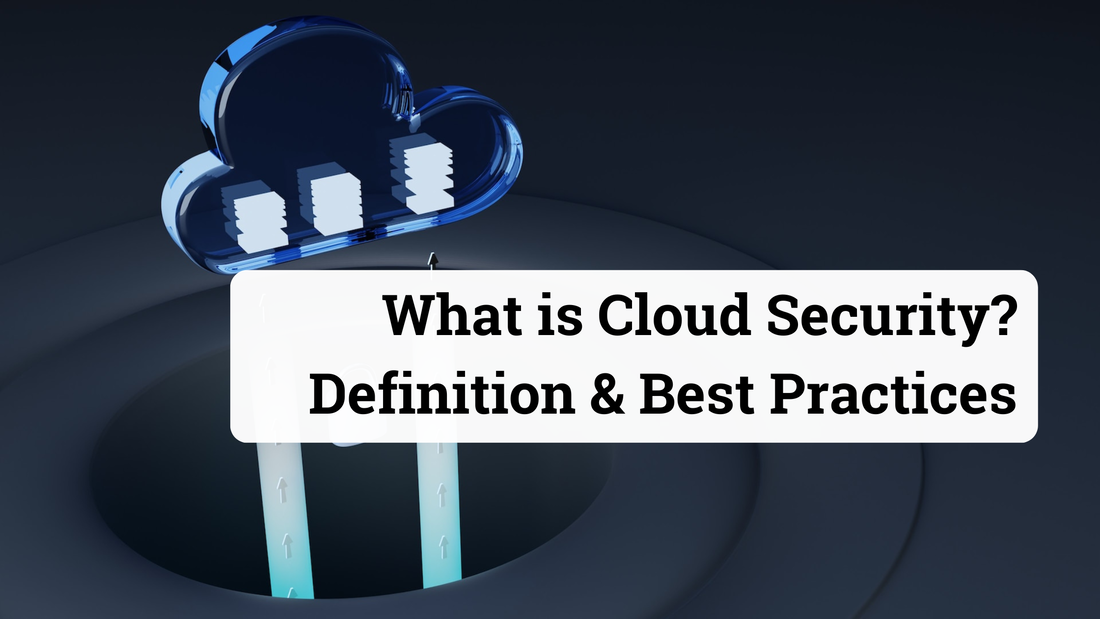|
Cloud computing has become a ubiquitous part of modern business operations, with more and more companies relying on cloud services for storage, software, and infrastructure. However, with the increased use of cloud computing, there has been a corresponding increase in cloud security breaches, with cybercriminals targeting cloud systems to steal data or disrupt operations.Hence, there is a need for robust cloud security measures to protect data and systems from cyber threats. Before going into detail on why cloud security is so important and the best practices for cloud security, we shall go back to the basics. What Is Cloud Security? Cloud security refers to the set of policies, procedures, and technologies that protect cloud-based systems, data, and infrastructure from cyber threats. Cloud security covers a range of areas, including access controls, data encryption, network security, and application security. Cloud security is crucial because, without it, cybercriminals can exploit vulnerabilities in cloud systems to steal data, disrupt business operations, or gain access to other systems on a network. Why Is Cloud Security So Important? These are a few high profile examples of data breaches related to cloud security that have occurred in the past. In 2022, the cloud security company Wiz was breached, resulting in the exposure of sensitive data belonging to some of their customers. The breach was caused by a vulnerability in Wiz's own infrastructure and affected companies such as Amazon, Google, and Microsoft. In 2021, the online game developer EA (Electronic Arts) suffered a data breach that involved the theft of source code, game development tools, and other proprietary information. The breach was caused by a vulnerability in an EA server that was hosted in the cloud. In 2020, the online retailer Shopify suffered a data breach that involved the theft of customer data, including names, addresses, and order details. The breach was caused by two rogue employees who accessed data from Shopify's cloud-based customer support system. These recent data breaches demonstrate the importance of implementing robust cloud security measures to protect against cyber threats. As more and more organizations move their data and applications to the cloud, it is essential to ensure that appropriate security controls are in place to protect against unauthorized access, data theft, and other security risks. Best Practices for Cloud Security 1. Secure Access Controls: Access control is an essential part of cloud security, and businesses should implement strong access control policies to restrict access to cloud systems and data to authorized personnel only. Multi-factor authentication, identity and access management (IAM) systems, and role-based access control (RBAC) are some of the best practices for access control.
2. Data Encryption: Data encryption is the process of converting data into an unreadable format to protect it from unauthorized access. Businesses should ensure that data stored in the cloud is encrypted both at rest and in transit. Encryption keys should be managed carefully to ensure that only authorized personnel can access them. Hence, this will help to protect against unauthorized access and data theft. 3. Network Security: Cloud systems are vulnerable to network-based attacks, and businesses should implement network security measures to protect their cloud infrastructure. Firewalls, intrusion detection systems (IDS), and intrusion prevention systems (IPS) are some of the best practices for network security. 4. Application Security: Cloud-based applications should be designed and developed with security in mind. Secure coding practices, regular security testing, and access controls are some of the best practices for application security. 5. Regular Security Audits: Regular security audits, such as vulnerability assessment and penetration test (VAPT), can help to identify vulnerabilities in cloud systems and ensure that security measures are up to date. 6. Disaster Recovery and Business Continuity: Businesses should implement disaster recovery and business continuity plans to ensure that they can recover from data breaches, system failures, or other disasters that may affect their cloud infrastructure. 7. Vendor Management: Businesses should ensure that their cloud service providers have robust security measures in place. The service level agreement (SLA) should clearly define the vendor's responsibilities for security, and the vendor's security practices should be regularly audited. 8. Employee Training: Employee training is an essential component of cloud security. Employees should be trained on best security practices, including identifying phishing scams, creating strong passwords, and identifying suspicious activity. Takeaway Cloud security is crucial for protecting cloud-based systems, data, and infrastructure from cyber threats. Access controls, data encryption, network security, application security, regular security audits, disaster recovery, vendor management, and employee training are some of the best practices for cloud security. Businesses should implement these best practices to ensure that their cloud infrastructure is secure and their data is protected. By following these best practices, businesses can minimize the risk of cyber attacks and ensure the continuity of their operations Comments are closed.
|
Archives
June 2024
Categories
All
|
|
© 2021, TAFA HOLDINGS (S) PTE LTD. ALL RIGHTS RESERVED
|


 RSS Feed
RSS Feed